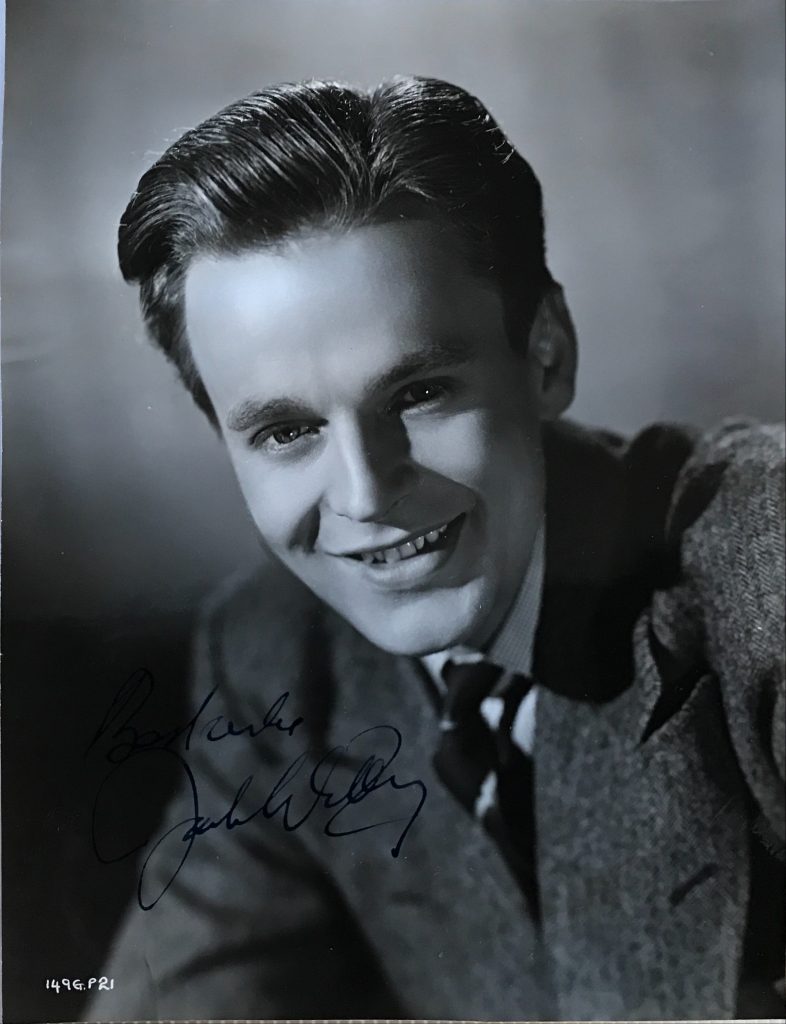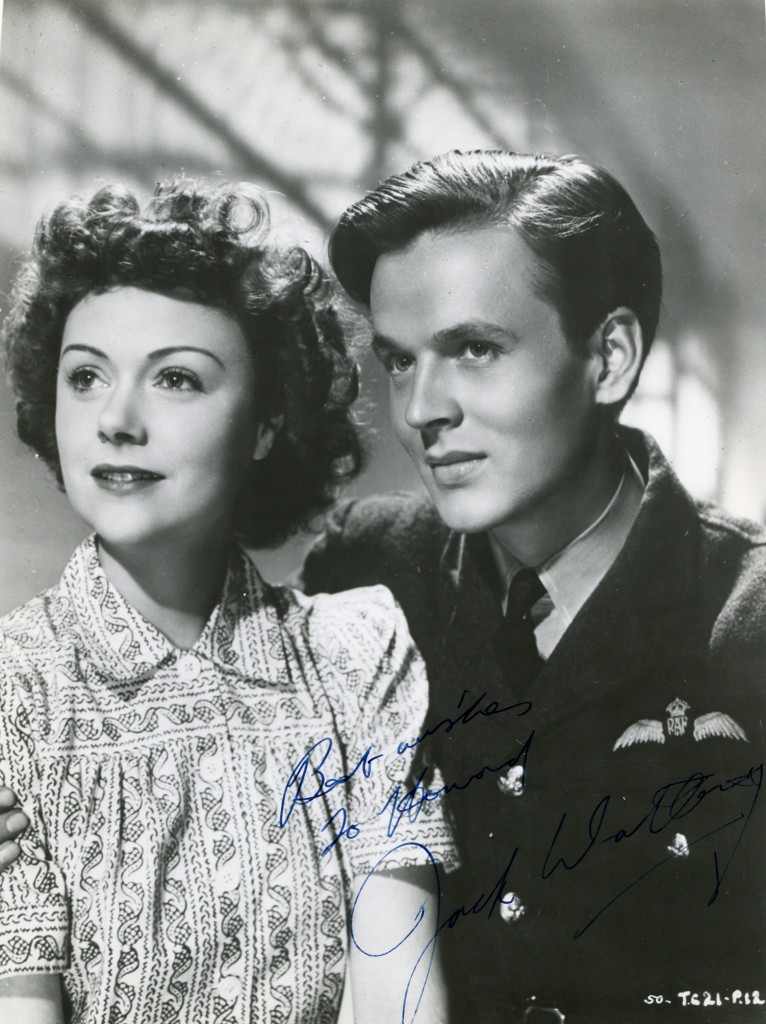
Jack Watling was born in 1923 in Essex. He trained at the Italia Conti Drama School in London. He made his movie debut in 1938 in “Sixty Glorious Years” with Anna Neagle as Queen Victoria. His films include “We Dive At Dawn” in 1943, “The Way Ahead”, “The Winslow Boy” and “Reach For the Dky”. In his later years appeared much on television including “Heartbeat” and “Bergerac”. Jack Watling died in 2001.
Eric Shorter’s obituary of Jack Watling in “The Guardian”:
With more than 50 feature films to his credit, a West End career of more than half a century, and scores of character parts in postwar television, Jack Watling, who has died aged 78, knew how to make acting look easy. He used his boyish good looks, relaxed manner and affable personality to develop a charmingly understated style of simple, direct integrity. Comedy was his preferred genre; and he had the timing to go with it.
Among his better-known work for the small screen, in which he found more scope for out-of-the-way types than in the cinema or theatre, were the sales director Don Henderson, in The Plane Makers (1963-64) and its successor The Power Game (1965), and the RAF officer Doc Saxon, in The Pathfinders (1972-73).
The son of a Chingford scrapmetal dealer, Watling started acting in school productions, and was accepted by the Italia Conti Academy. In 1942, a fictional airman, Flt-Lt Graham, a character in Terence Rattigan’s play Flare Path engaged his attention. His audition for the part took place at the Savoy cocktail bar – a place with which the 19-year-old Watling was hardly familiar. He read a few lines and Rattigan, after consulting two colleagues, assured him he had got the part.
Rattigan also told Watling that, although Anthony Asquith was directing the play, Keith Newman, a Viennese psychiatrist and voice teacher, “will be directing you.” At that point in his career, Watling had been in a few films – Sixty Glorious Years and The Housemaster (both 1938) and Goodbye, Mr Chips (1939) – and had worked in the West End, including doing a stint with Donald Wolfit’s Shakespeareans. But he had never played a leading man in an important new play. He was nervous, innocent and awed.
Newman proceeded “to insinuate himself into my life,” as Watling later put it, and prove hypnotic and disconcertingly influential. Watling would have to stay in his Oxford flat during the provincial try-out, and accompany Newman to the Lake District to have his voice trained.
He would have to refuse an MGM contract because he had too much acting talent to bother with the cinema – although his ambition had been film stardom. When his call-up papers arrived, he would join the RAF, but still be able to perform nightly because Newman had fixed a London posting for him.
Unaware that Rattigan had a taste for handsome, fresh, roundfaced young men like himself, Watling was glad to learn that Newman had told Rattigan “not to bother me”. Later, however, Newman pestered Watling with love letters, and, when he began to fear for his sanity, Watling got him admitted to a mental home.
Rattigan was sufficiently pleased with Watling to promise to write his next play for him. By then, though, the RAF had posted Watling far from London – and Michael Wilding took the lead in While The Sun Shines (1944).
After demobilisation, Watling suffered from acute anxiety neurosis, but Rattigan remained confident of his ability and, in his next success, The Winslow Boy (Lyric, 1946), Watling played the young hero’s elder brother, Dickie; he also appeared in the film version.
If there was such a thing as a Rattigan actor, Watling was well qualified – he knew better than most actors how to convey the dramatic values of unspoken emotion, Rattigan’s own speciality.
Watling married the actress Patricia Hicks in 1947, and there followed a succession of stage, film and television parts until, in the 1960s, he was cast as the henchman to Patrick Wymark’s power-mad tycoon in The Plane Makers. It ran for two years, to be followed by the even more ruthless Power Game.
As manager and director, Watling staged tours of comedies and thrillers, and ran the summer rep at Frinton-on-Sea from 1973. He served the Royal Theatrical Fund from 1966, and was its chairman from 1985. He continued to appear in the West End, as Colonel Pickering to Peter O’Toole’s Higgins in Pygmalion, and finally, again with O’Toole, in Keith Waterhouse’s Our Song (1992). Television parts kept him busy in Dr Who and Bergerac.
He is survived by Patricia, three daughters and a son, all of whom are actors. Another son died in 1952.
• Jack Stanley Watling, actor, born January 13 1923; died May 22 2001


